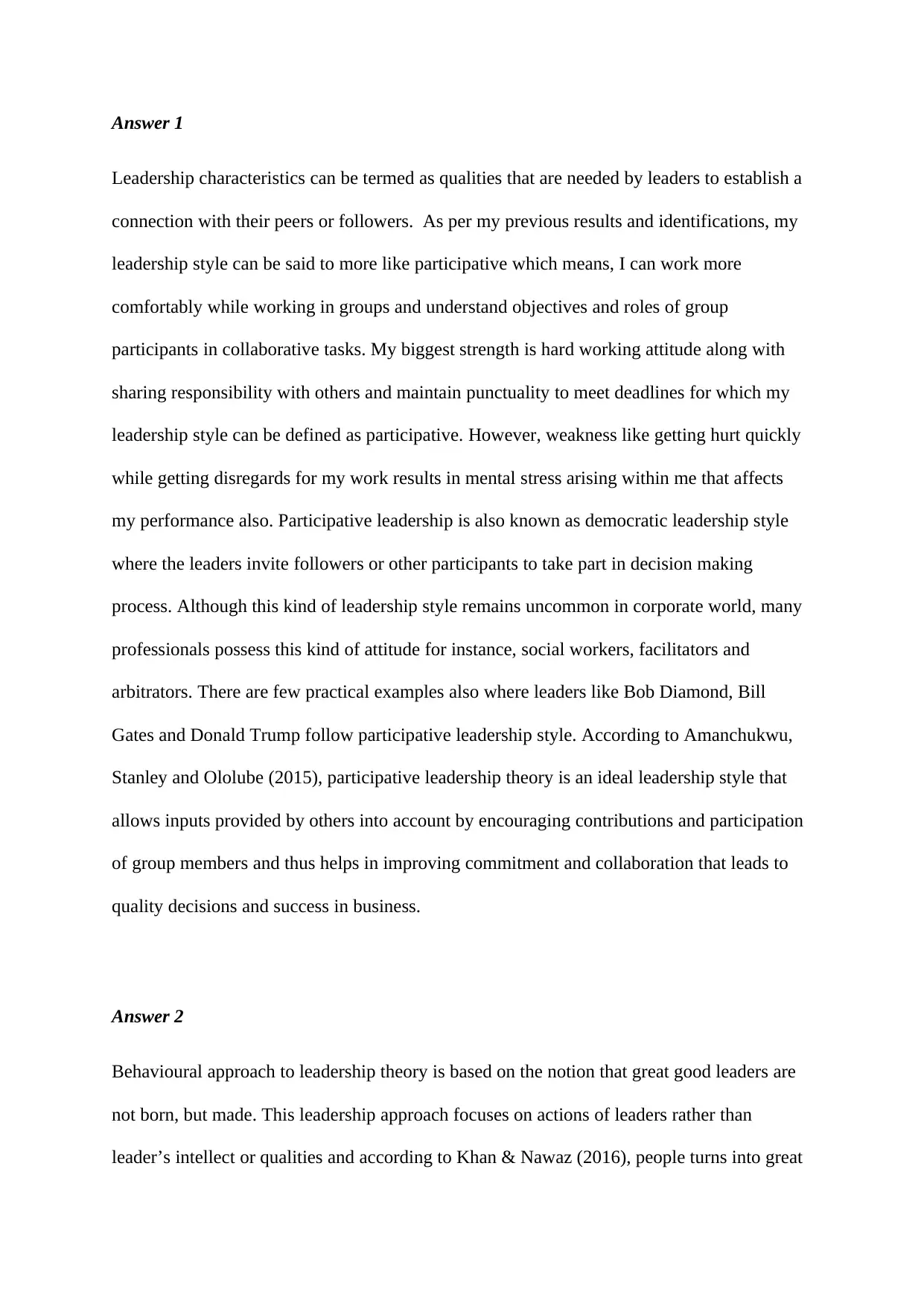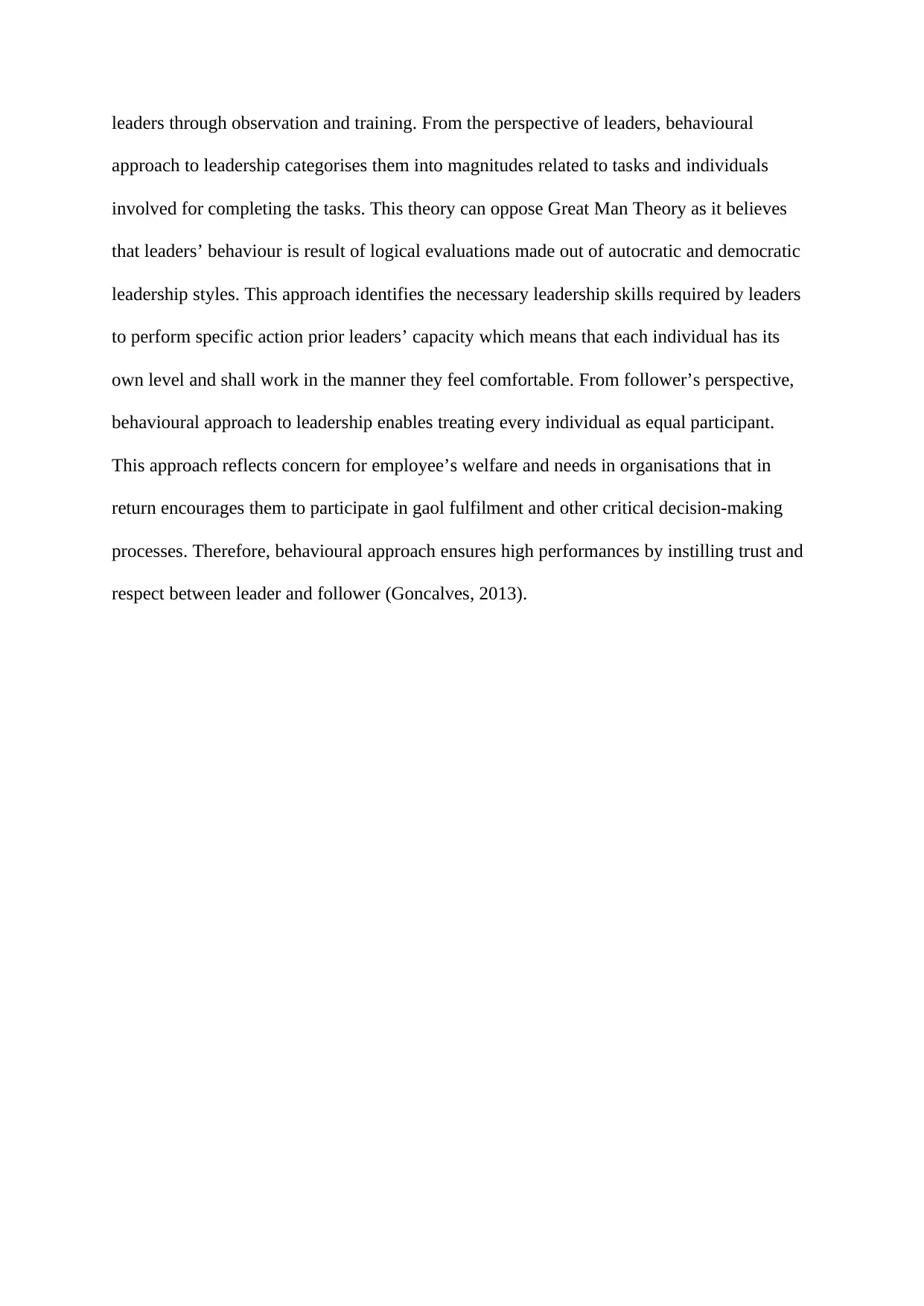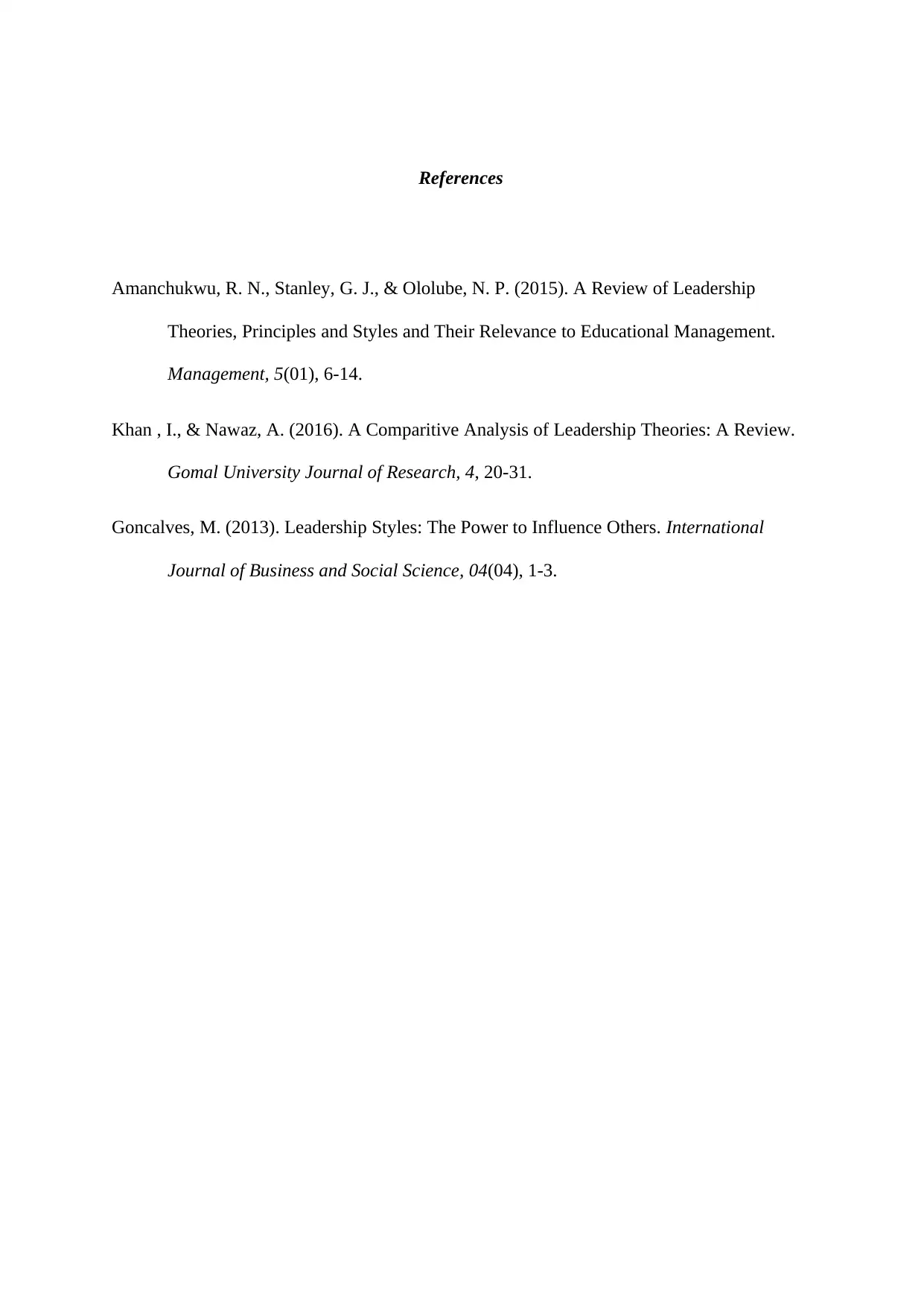Assessment of Leadership Theories, Styles and Characteristics
VerifiedAdded on 2023/04/25
|4
|589
|246
Homework Assignment
AI Summary
This assignment analyzes two key leadership concepts: participative leadership and the behavioral approach. The student explores their personal leadership style, identifying it as participative, emphasizing teamwork and shared responsibility. The assignment defines participative leadership and provides real-world examples of leaders who employ this style. The second part delves into the behavioral approach to leadership, which focuses on observable actions and learned behaviors rather than innate traits. The assignment highlights the importance of training and observation in developing leadership skills and contrasts this approach with the Great Man Theory. The behavioral approach's emphasis on treating individuals equally and prioritizing employee welfare is also discussed. References from academic journals support the analysis of both leadership styles and theories. This assignment demonstrates an understanding of different leadership theories and how they apply in practice.
1 out of 4











![[object Object]](/_next/static/media/star-bottom.7253800d.svg)